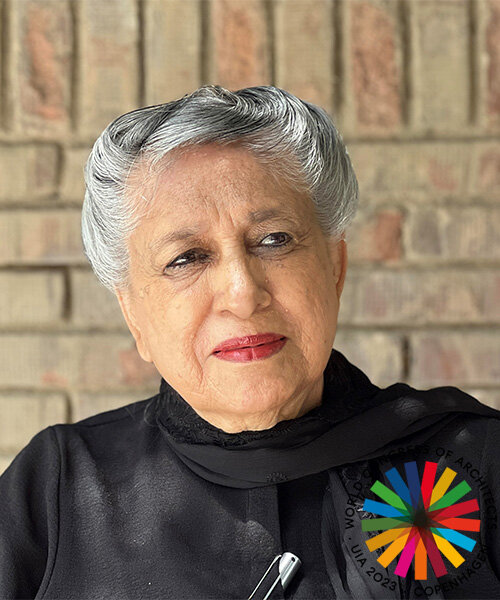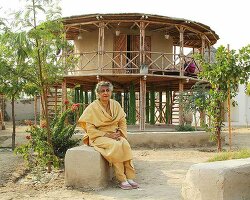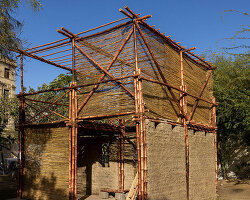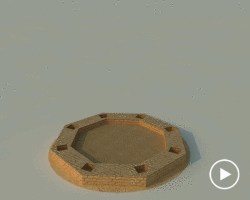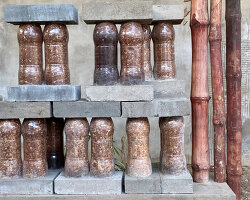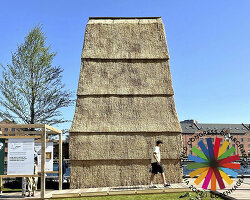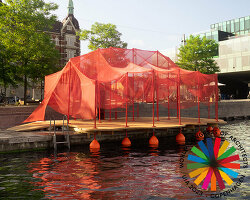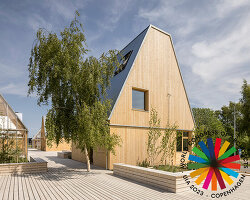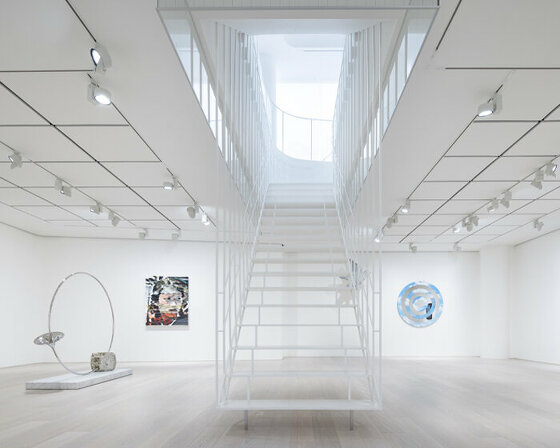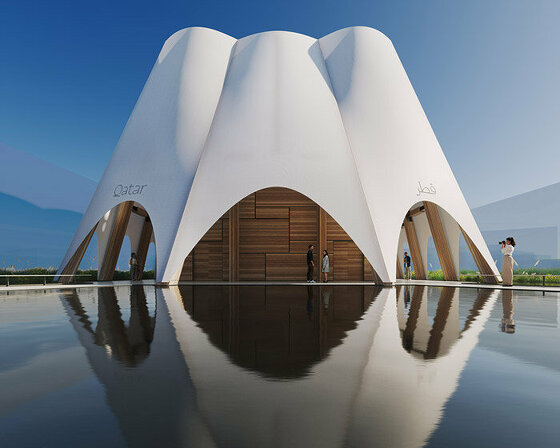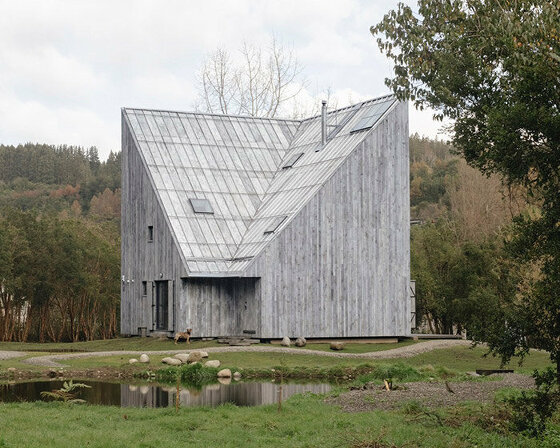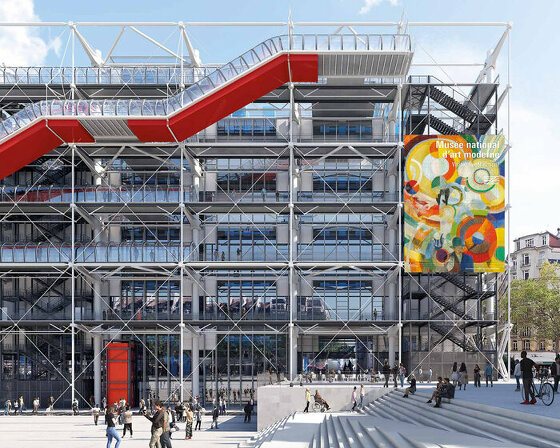Yasmeen Lari delivers keynote speech at UIA 2023 World Congress
Yasmeen Lari, Pakistan’s first female architect and CEO of the Heritage Foundation of Pakistan, delivered a keynote speech at the 2023 International Union of Architects (UIA) World Congress. The event, held from July 2 to 6, featured renowned speakers from around the world, including Lari, who was also honored with RIBA’s 2023 royal gold medal. Lari, an architectural historian, heritage conservationist, philanthropist, and humanitarian architect, focused her speech on the topic of sustainable communities and the rehabilitation of climate migrants through leveraging poverty potential.
During her keynote, Yasmeen Lari shared examples from her own practice, highlighting instances where impoverished communities achieved self-sufficiency in flood-resilient housing, hunger reduction, and flood mitigation measures through self-build initiatives. To find out more about the social responsibility of architects in today’s world, the significance of women professionals in the architectural field, and the key design principles and strategies employed in creating Yasmeen Lari’s self-build communities, designboom spoke with the esteemed Pakistani architect. Read the interview in full below.
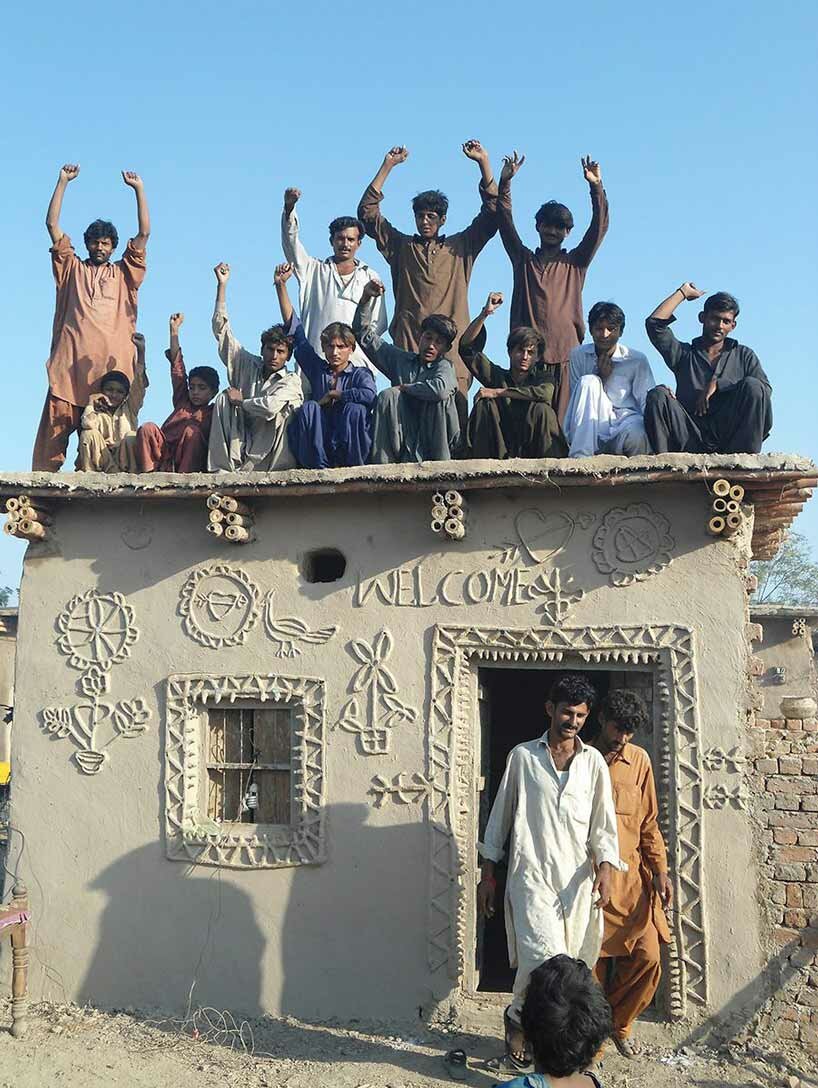
Mud Brick One Room House, © Heritage Foundation of Pakistan
interview with yasmeen lari
designboom (DB): Having transitioned your focus to social and ecological justice since retiring from architectural practice in 2000, what do you consider to be the main priorities and responsibilities of contemporary architects? How do you view the role of architects in contributing to society?
Yasmeen Lari (YL): I believe in the decolonization and democratization of architecture as a means to relate to the realities of this century. Today, most of the world suffers from poverty and disparities, climate change, and greenhouse gas emissions. Architects could play a key role in stitching the frayed tapestry of the earth. They could utilize their gift of design to give agency to those living on the margins through participatory approaches.
In the new world order, they don’t need to wait for commissions from the 1% and the elite anymore. They could equally become champions of social justice by helping improve the lives of disadvantaged communities, and millions of climate and conflict migrants suffering from displacement around the world. As eco-activists who pursue a decarbonization agenda, they could promote principles of eco-urbanism and circularity to humanize urban centers for a better quality of life for all citizens.
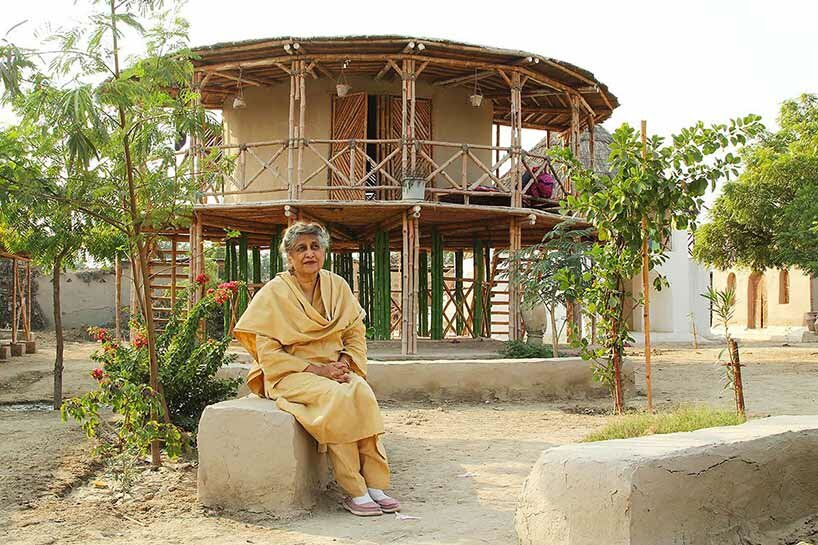
Yasmeen Lari above Women’s Centre, Pakistan © Heritage Foundation of Pakistan
DB: As the first female architect in Pakistan, how do you perceive the evolving role of women architects in today’s landscape? Are there unique contributions that women can bring to the architectural profession?
YL: At the time that I began my practice, there were very few women architects even in industrially developed countries. It has taken a long time for women to reach positions of strength when they feel confident about expressing their special points of view regarding communities and the environment. In my view, women architects bring different viewpoints and sensibilities to the table. They seem to be more conscious of the needs of women and children and inclined to create humanistic environments. Women designers’ perspective is even more significant in developing countries, where female populations have traditionally suffered from discrimination and neglect and need an architecture that would focus on their dignity.
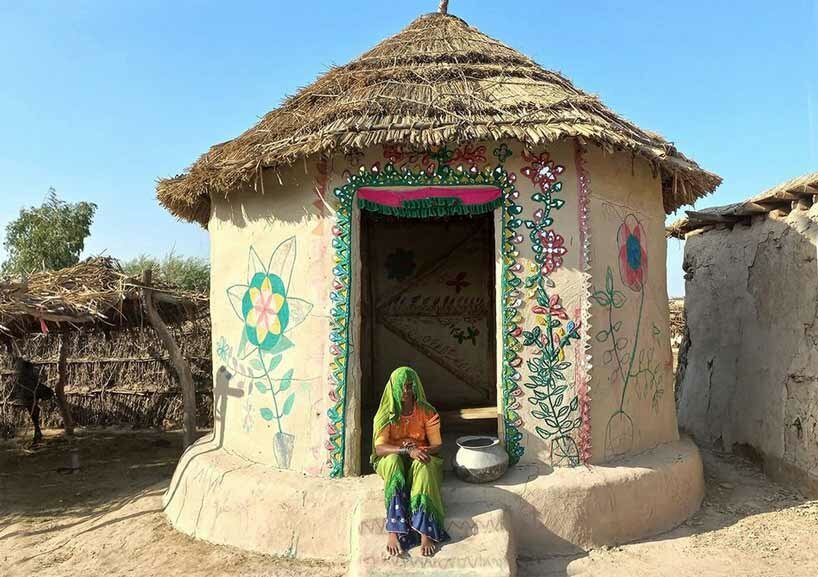
Zero Carbon Cultural Centre-Makli © Heritage Foundation of Pakistan
DB: From your perspective, what role do you believe governments, philanthropic organizations, and communities should play in supporting the rehabilitation of climate migrants and the establishment of sustainable communities?
YL: As a Pakistani, whose country is a front-line state in dealing with recurring disasters, I know that the international colonial charity model, and system of clusters and silos pursued by the UN system, INGOs, and NGOs, patronized by international aid-giving agencies, are not sustainable. In spite of the injection of enormous amounts of funds, they have not delivered the results that were intended or expected. This is because the model treats people as victims, giving out handouts and cash grants, and fostering a culture of dependence, robbing people of their dignity.
However, under the principles of my Barefoot Social Architecture (BASA), displaced communities are treated as partners. From the beginning, the focus is on the creation of sustainable communities through implementing humanistic humanitarianism. Under this system, the displaced are not considered disabled but perfectly able people who, with guidance and training, can be enabled to adopt the path of self-reliance.
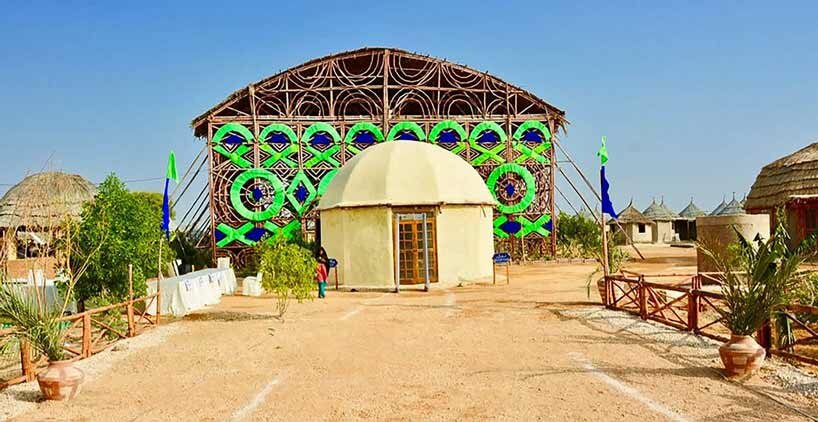
Zero Carbon Cultural Centre, © Heritage Foundation of Pakistan
(YL continued): To effectively engage individuals as partners and enhance their capabilities, we need to provide training, share knowledge and skills, and foster participatory approaches that empower them to become self-reliant. In order to implement humanistic humanitarianism, it is important for philanthropic organizations and international aid systems to change their strategies. This includes investing in providing essential materials, adopting a holistic model for participatory rehabilitation that prioritizes skills development and training, and ensuring that assistance focuses on teaching people how to construct affordable yet safe structures. Moreover, it involves providing training in community-based disaster risk management to enable flood mitigation measures. Additionally, facilitating the production of affordable products allows communities to address their unmet needs.
In the global south, what we are looking for is a transfer of knowledge in order to prepare our communities for the next disaster. In this way, individuals can grow better species of food, conserve water sources, and assist in the provision of better water supply, clean energy, computers and monitors for schools, and cell phones for women.
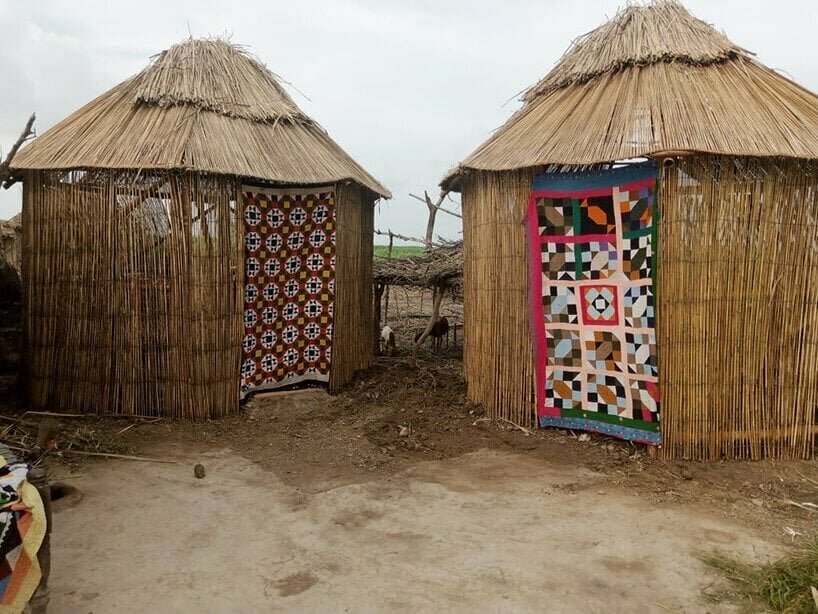
Lari Octa Green shelters, © Heritage Foundation of Pakistan
DB: What are the key design principles and strategies used in creating self-build communities with a focus on flood resilience, hunger reduction, and flood mitigation?
YL: In my view, because of large-scale destruction, and in order to make communities resilient, we need all the above as well as large-scale plantations and livelihoods. I believe in holistic models as focusing on the provision of only one or the other communities can never become self-sustaining. I have two methodologies for delivering. One is based on grants in kind which would cost a sponsor only 43,000 or 1. Holistic model at a cost of $150 per household achievable in 8 months:
– Rights-based provisions which can be attained at a cost of 30,000 which includes one zero carbon safe room, one clean Pakistan Chulah earthen stove, shared eco toilet, shared water supply, and shared solar panel.
– Food security with vegetables, chickens/eggs, and fish.
– Flood mitigation measures: earth boundary walls, aquifer wells, community forests, bamboo barriers, and porous pavements.
– Income generation based on barefoot enterprises for the sale of affordable products within the surrounding disadvantaged population.
– Building social infrastructure through community savings consisting of basic health facilities and village schoolrooms.
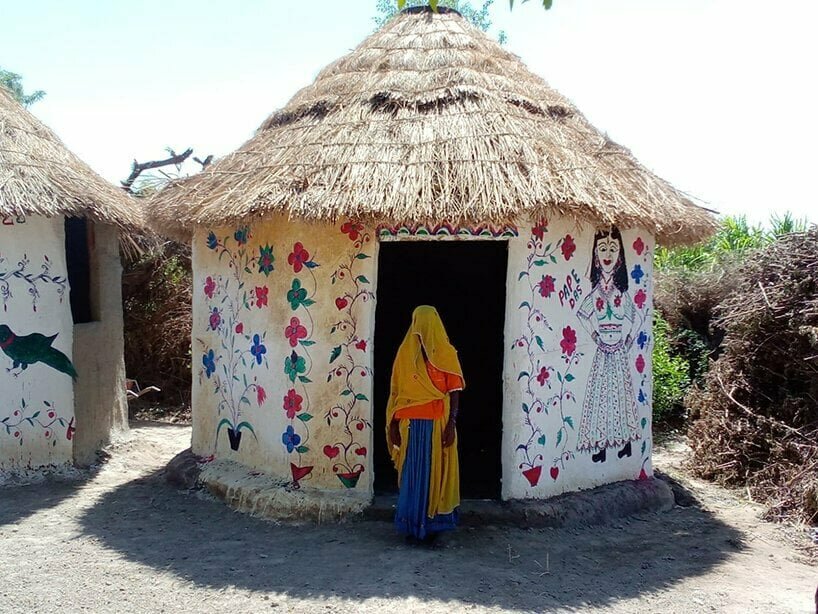
Lari Octa Green shelters, © Heritage Foundation of Pakistan
(YL continued): The second model which has taken off is Zero Donor Villages which relies on the meager resources of the displaced. This model relies entirely on a trained workforce emerging from the holistic model entrepreneurs which helps others to learn to become self-reliant through the family savings spearheaded by housewives.
– Procurement of one water source of 60 families and assuring food security with vegetables, chicken and eggs, and fish as well as the construction of the earthen Pakistan Chulah stove.
– After beginning to save, provision of know-how to build eco toilets and a couple of weeks later begin building a one-room house. Since they begin to save and have acquired the necessary skills they can increase the number of toilets and safe rooms incrementally.
– With their savings, acquire solar panels and any other facilities e.g. solar dehydration of food.
– Begin a program for flood mitigation including planting community forests, making aquifer wells, bamboo barriers as well as sponge pavements.
– Embark on income-generating skills and begin to use community savings to build village schoolrooms and health clinics.
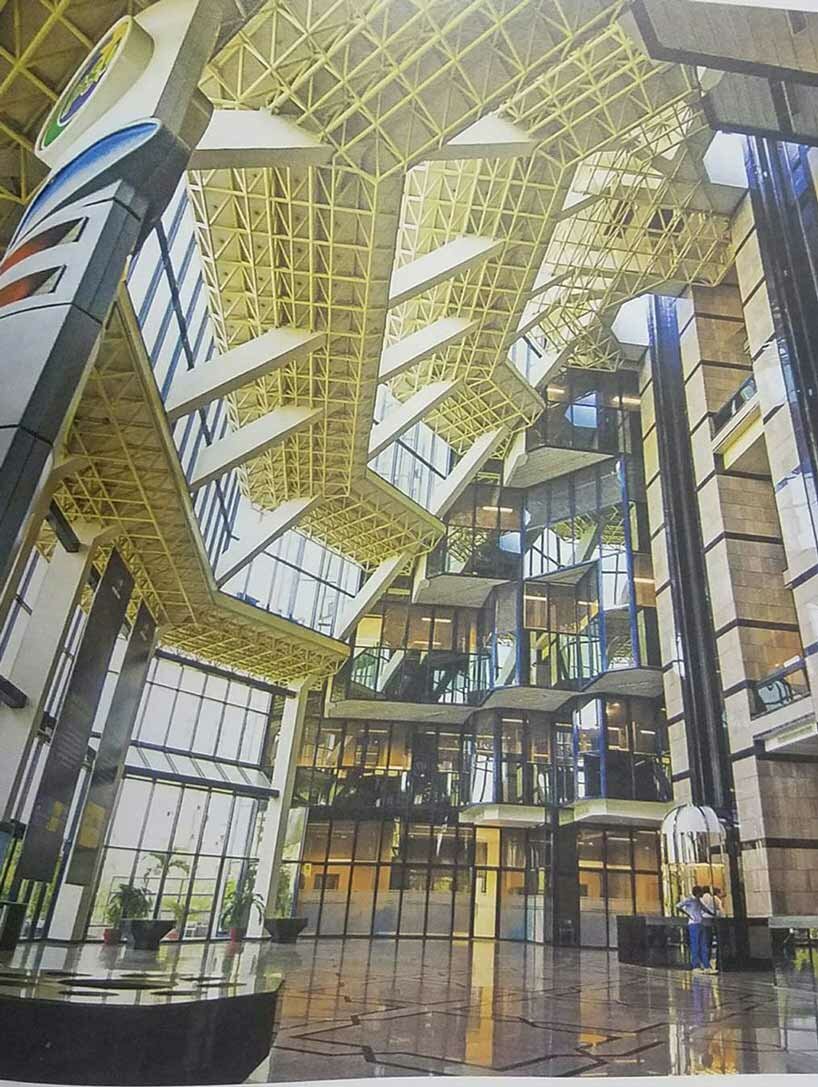
PSO House, © Heritage Foundation of Pakistan
DB: When assessing the impact and success of your projects in terms of poverty reduction and sustainable development, what metrics or indicators do you prioritize and consider?
YL: Today I am pursuing my target of achieving rehabilitation of one million households. There are different parameters to measure success. Each stage in each model is evaluated to check if the targets are being met, and what further support could be provided. The holistic model villages are expected to become self-sufficient within 7-8 months, while the Zero Donor communities will take over a year to achieve survival level.
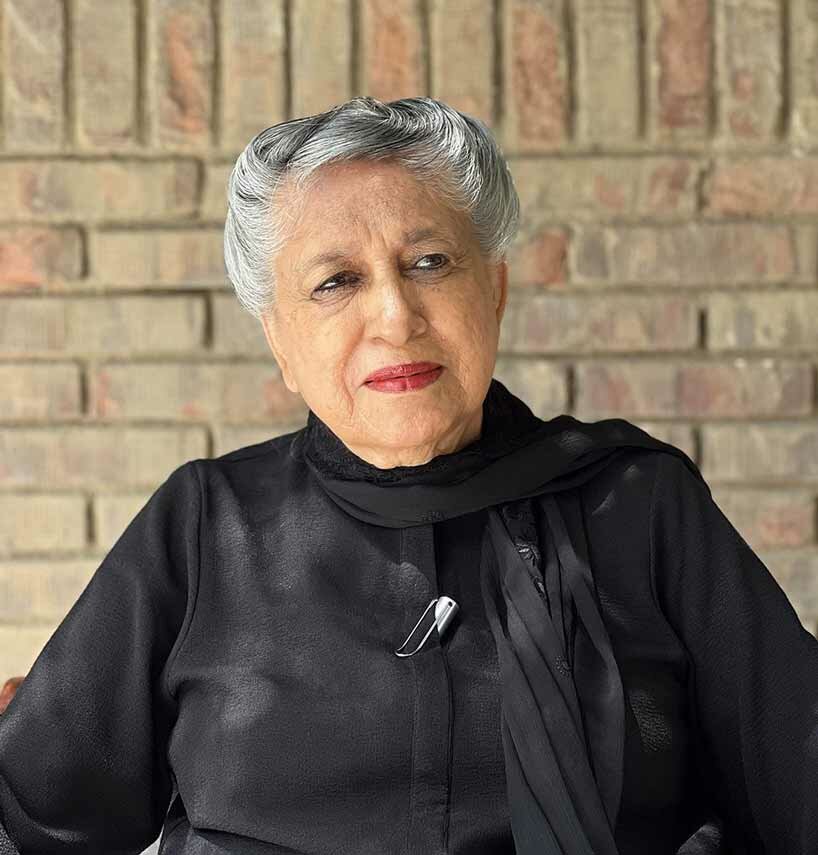
portrait of Yasmeen Lari, photo © Anam Baig
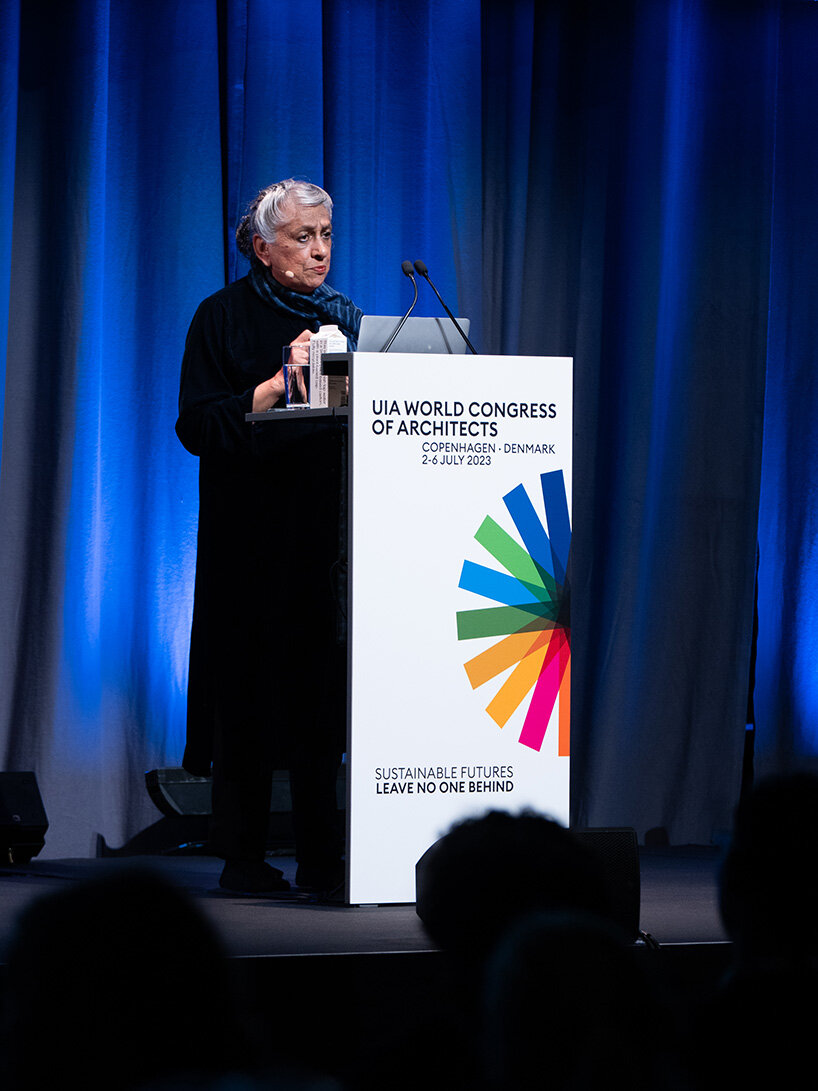
Yasmeen Lari on the rehabilitation of climate migrants | image © International Union of Architects (UIA) World Congress
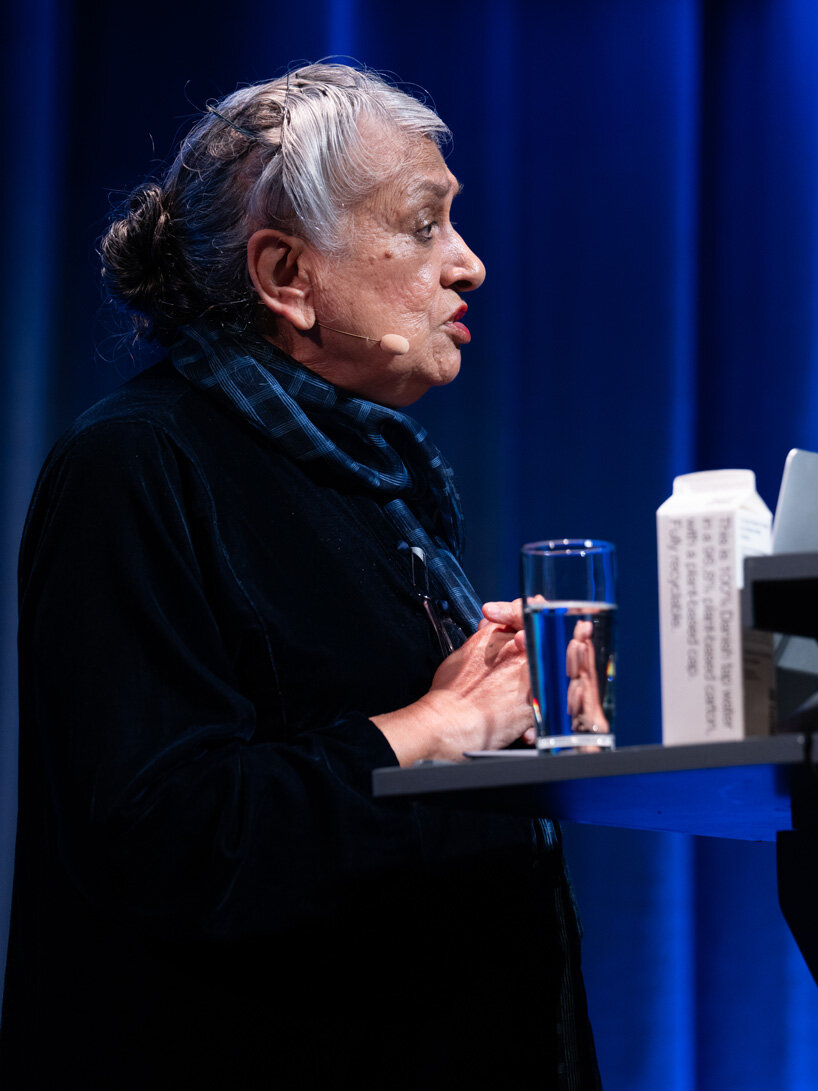
Yasmeen Lari on the rehabilitation of climate migrants | image © International Union of Architects (UIA) World Congress
project info:
name: Yasmeen Lari, co-founder and CEO of Heritage Foundation of Pakistan | @heritagefoundationpk
event: International Union of Architects (UIA) World Congress
location: Copenhagen, Denmark
running dates: July 2-6, 2023
The International Union of Architects (UIA) organizes every three years a world congress of architects. The world congress in 2023 is held in Copenhagen, Denmark, from July 2 – July 6. The congress program is from 8:30 am to 4 or 4:30 pm Monday to Wednesday and from 9 am to 14:30 pm Thursday, while more activities take place outside congress hours, in and around Copenhagen.
art and architecture in pakistan (9)
UIA world congress of architects (4)
yasmeen lari (3)
PRODUCT LIBRARY
a diverse digital database that acts as a valuable guide in gaining insight and information about a product directly from the manufacturer, and serves as a rich reference point in developing a project or scheme.
